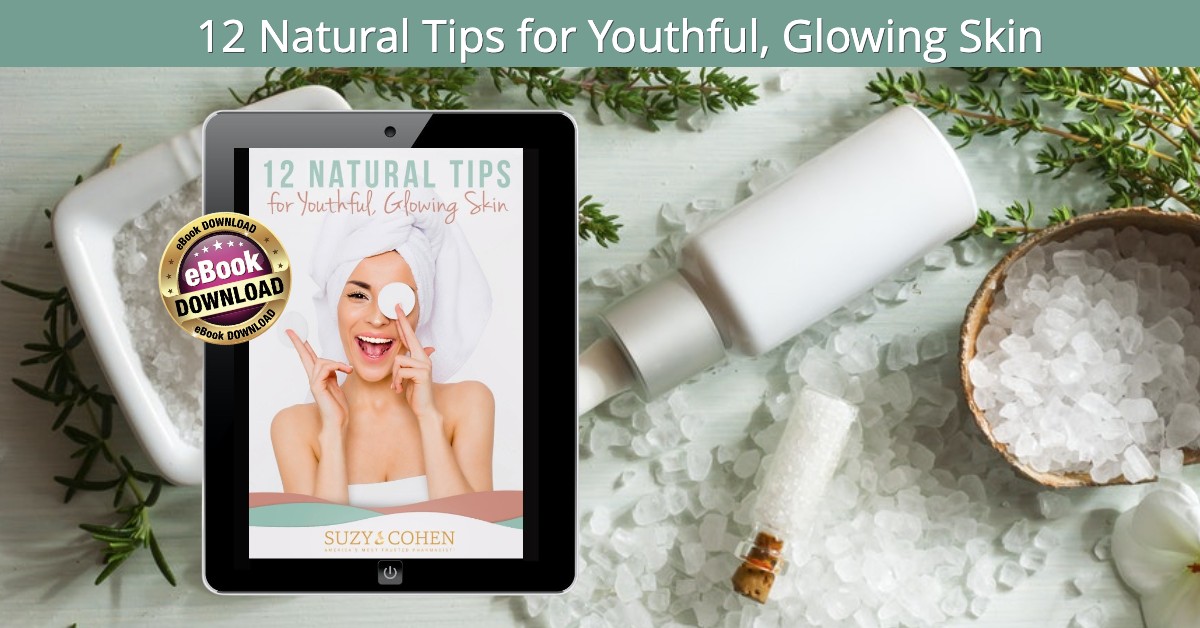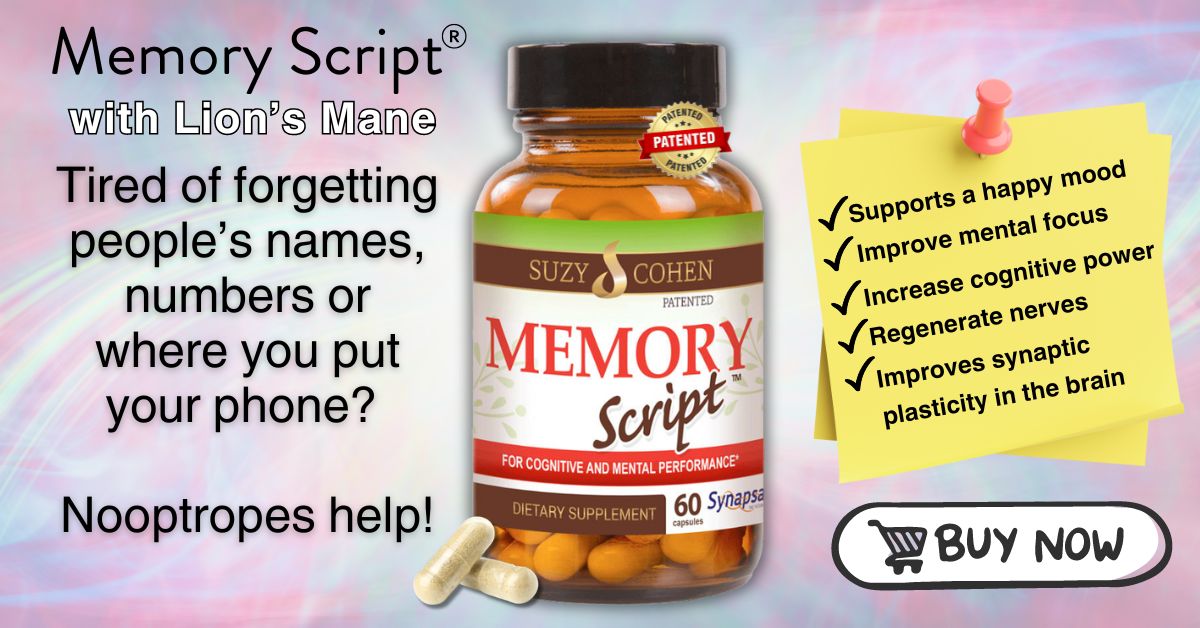What's On This Page?
ToggleNootropic is a strange word and I will help you see that this is something that you must become familiar with but first a short story- As I was doing my Wordle this morning it dawned on me that I was really doing this to grow new brain cells, not because I enjoyed it that much. I started playing it daily because one of my daughters recommended it to me and it’s nice to share our scores each day. At times the game is frustrating because I stare at the same screen noodling my next attempt for like, 5 minutes!
My best is two tries, and I’ve done that a few times to my own surprise! However, it usually takes me 3 or 4 tries to discern the word of the day. Sam says this game “upsets him” lol 😂 but he still does it.
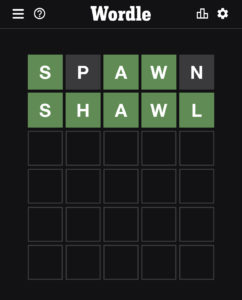
The game actually inspired me to write today’s blog on memory. The “Wordle” word game is a favorite among those who like to exercise their brain, but it’s not the only way to get smarter! There are other ways to improve cognitive function, gain better sleep, and reduce the risk for Alzheimer’s disease and dementia. If you too want to grow a bunch of new neurons, don’t depend entirely on Wordle… or jigsaw puzzles, sudoku, or even crosswords!
Those are great for you of course, but you should also be nourishing your brain with nootropic foods (like blueberries) and amino acids, or herbals that are scientifically proven to work. Today’s article covers the best-known natural nootropic vitamins and herbs, ones that are easily accessible and relatively affordable when compared to medications. Nootropes are cognitive enhancers, you can read more HERE.
Brain power, attention span, and learning capabilities depend on so many factors that I couldn’t even list them here. Intermittent fasting, magnesium levels, and specific genes in your DNA strand all come to mind. But for sure, one thing you need is proper neurogenesis, which means more growth of neurons in the brain.
Without that process, you’d be vegetative. We grow brain cells, just not as fast as we grow skin cells. Several things help spur neurogenesis and nootropic foods and supplements are well-documented to have this type of activity. Of course, the best-known nootropic agents are prescription “smart pills” such as Adderall® and Ritalin® and other drugs that are commonly prescribed for ADHD (Attention-Deficit/Hyperactivity Disorder). If that is a condition that interests you, visit CHADD which is the website: Children and Adults with Attention-Deficit/Hyperactivity Disorder.
Blueberries are food, but they’re also a Nootropic Agent
Simple things like what we choose to eat can help. For example, blueberries contain flavonoids and anthocyanin which promote neurogenesis. Red grapes (wash them very well) contain quercetin and resveratrol and both of those compounds feed your brain cells. Walnuts are another and they help because of the essential fatty acids. Perhaps the most well-known ‘brain food’ is salmon and other wild-caught fatty fish, these help you because they are high in DHA fish oils.
Here are some other natural nootropic compounds that support good memory and recall, and like I always say, please ask your doctor if it’s right for you because these have multiple effects on the body, and some of them adversely interact with other medications and medical conditions.
Lion’s Mane is a Nootropic and Good for the Brain
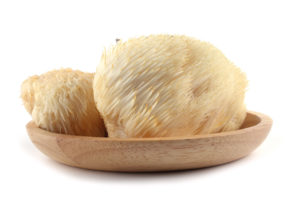
It’s great at making you think faster because it produces more mental energy. Basically, it makes me solve problems and do Wordles much faster! 😂 This can be purchased at the grocery store, or farmer’s market, as a commercial tea, or concentrated in dietary supplements.
You can cook with it like you do shiitake mushrooms! Lion’s Mane mushroom extract is a nootropic that keeps helps you make NGF which stands for Nerve Growth Factor. The NGF production is good if you have a disease that reduces your brain from producing enough of its own NGF. We also know that it can help with depression, memory, and anxiety.
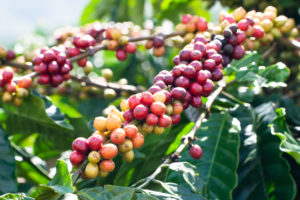
Caffeine is a Nootropic and Increases Memory Capacity
Most people drink coffee every day, and caffeine provides your brain with a natural stimulant that helps you think with clarity and learn faster. Anyone who gets a natural lift from caffeine-containing beverages already knows that it works, and now you have a new excuse to enjoy. Let me caution you not to get too much caffeine because it can cause restlessness, and insomnia and also increase blood pressure, cause rapid heartbeat, and panic attacks or anxiety. If you have hypertension or heart disease, it’s best to avoid this specific compound as you probably already know.
Green Tea and Matcha are Nootropes for Good Brainpower
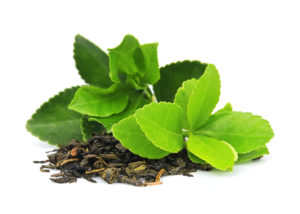
These drinks provide less caffeine than espresso and coffee, however, it does the same thing. It increases clarity and brain power. It makes you work faster, and think more clearly. You can make faster decisions and your reflexes are faster.
One advantage of these beverages is that they contain EGCG and this is a natural tumor-fighting compound. I drink Matcha daily with either coconut milk or regular milk, and a teaspoon of sugar.
If you don’t want to drink it, you can take supplements of EGCG, these are sold nationwide at health food stores, and on e-commerce sites.
Ginkgo Biloba-Nootrope is Widely Known for Increasing Blood Flow to the Brain

This natural herb is categorized as a nootrope, but it does so many other things. Warning, it definitely acts as a Monoamine Oxidase Inhibitor (MAOI) and if you take a drug in that category, you don’t want to take ginkgo with it! But the beauty of that mechanism of action for all others who aren’t sensitive to MAOI drugs, or taking them is that it helps keep dopamine around a little bit longer. And dopamine is a mood-enhancing (happy) brain chemical that reduces anxiety and makes you feel passionate and energetic.
So a little ginkgo is good for the brain. Perhaps its most well-documented effect is microcirculation enhancement. That means it sends more blood to the brain, and in doing so, nourishes all the parts of the brain that help you think more clearly, make decisions and remember numbers and names.
Vinpocetine is another nootropic herb that increases blood circulation but it’s a different plant so I’m listing it in case you are allergic to ginkgo. The last point about ginkgo, it is a blood thinner, so avoid this if you are taking anticoagulants.
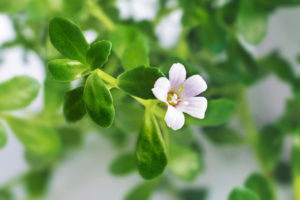
Bacopa Monnieri Improves Thinking
This natural herb is considered to be fairly non-toxic, and safe. It has been studied quite a bit, especially for Alzheimer’s disease, Parkinson’s, dementia, anxiety, and epilepsy. Besides being a fabulous neuron antioxidant, it increases acetylcholine activity and reduces β-amyloid formation.
Furthermore, like ginkgo, it increases cerebral blood flow and raises dopamine. If you could only take one thing for your brain, make sure your formula has this in it! And make sure it’s a good solid brand because the copy-cats are cut with other herbs. Genuine Bacopa herb needs to be harvested and cultivated properly first and foremost, and I’ve seen supplement makers cheap out and use inauthentic Bacopa. So if you want this particular ingredient as a supplement, go ahead and splurge.
Acetyl L Carnitine vs. L-Carnitine- Which Nootrope is better?
This anti-aging smart pill is a natural amino acid, and it’s sold as a dietary supplement. A brief description is here in my other article, Carnitine Good for Memory, Muscles and Energy. You will almost always find it multi-tasking memory formulas because it works better with other nootropes than by itself. It helps your brain work better over time, it’s not instant. The reason is that it helps your neurons create more of the memory hormone acetylcholine. That translates to a better mood too. Just FYI, deficiencies of acetylcholine play a role in the development and progression of Alzheimer’s disease.
Some medications for that specific disorder target the acetylcholine receptor. So providing the precursor to acetylcholine (with this amino acid) may be temporarily helpful for some people. This compound is not a cure, it’s just a building block. The reason I’ve listed Acetyl L Carnitine here, instead of the much cheaper form called “L-carnitine” is simple. I want it to help you. The “acetyl” group on the molecule helps it go right through your blood-brain barrier to reach your brain cells and nervous system. This amino acid is pretty straightforward and there are many trustworthy brands.
Phosphatidylserine is Good for Sleep and Brain
Phosphatidylserine is an extraordinarily well-studied nootropic and this compound naturally occurs in sunflower seeds and soybeans in case you like those. You’d have to eat bucketfuls on a daily basis, so for that reason, people purchase dietary supplements that contain this as part of the formula. It has been shown to be effective for adults, and can specifically help with sleep too!
CLICK HERE to see my own special formulation called Memory Script.

Suzy Cohen, has been a licensed pharmacist for over 30 years and believes the best approach to chronic illness is a combination of natural medicine and conventional. She founded her own dietary supplement company specializing in custom-formulas, some of which have patents. With a special focus on functional medicine, thyroid health and drug nutrient depletion, Suzy is the author of several related books including Thyroid Healthy, Drug Muggers, Diabetes Without Drugs, and a nationally syndicated column.
